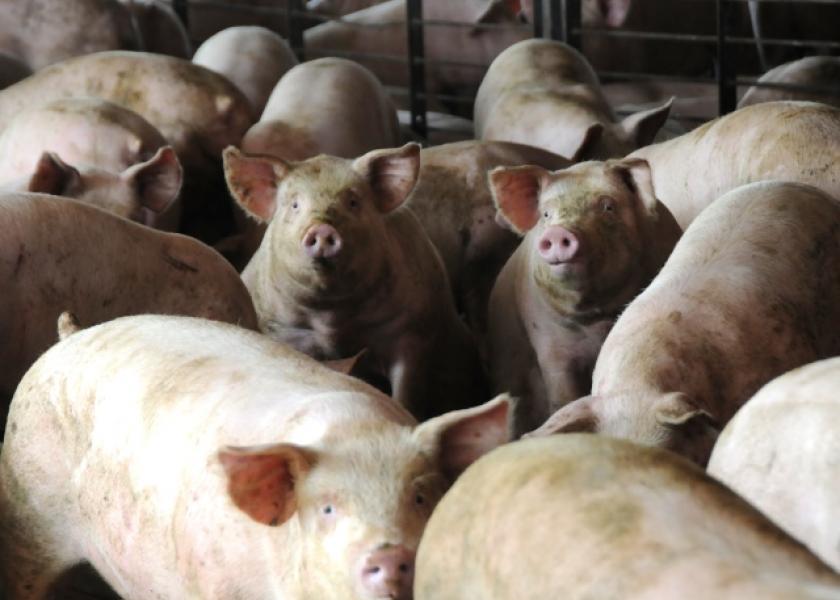Nebraska Bill to Allow Packer-owned Hogs Faces Resistance

A bill that would end Nebraska's status as the only state which prohibits meat packers from owning hogs received a skeptical reception Thursday from lawmakers, including many rural senators who said it would hurt family farms.
Supporters touted the measure as a way to help Nebraska's hog industry, which has grown slower than in several nearby states, according to the U.S. Department of Agriculture.
As of last year, Nebraska's hog production had matched the national growth rate at 14 percent over a decade, while South Dakota's increased by 53 percent, Iowa 30 percent, Minnesota 25 percent and Missouri's 22 percent.
But critics said the bill would give large packers too much leverage over small farms by allowing them to control the entire supply chain.
Contracts offered by packers impose tight controls on how the hogs are raised and place many of the risks onto producers, who are often saddled with debt to build their operations.
"If they lose their contracts, there's really no place for them to go — and they're out of business," said Sen. Al Davis, a rancher from Hyannis.
Opponents aimed criticism at Smithfield Foods, a Chinese-owned pork processor that has quietly lobbied for the bill and contributed to at least 20 current state lawmakers, Gov. Pete Ricketts and Attorney General Doug Peterson. Bold Nebraska, a progressive group, highlighted the donations earlier this week and said the bill would only benefit large corporations at the expense of family farmers.
The bill has divided farm groups. The Nebraska Pork Producers, the Nebraska Farm Bureau and the Nebraska Department of Agriculture have endorsed the legislation; the Independent Cattlemen of Nebraska, the Center for Rural Affairs and the Nebraska Farmers Union oppose it.
Sen. Ken Schilz of Ogallala said he introduced the bill to keep Nebraska's hog industry competitive with nearby states where it has grown faster. Schilz, a farmer and chairman of the Agriculture Committee, said the 1998 ownership ban only applies to in-state meatpackers. He said some companies might opt to move to neighboring Kansas or Iowa.
Sen. Kate Sullivan, the president of a family farm corporation in Cedar Rapids, said the bill would eventually turn producers into "serfs" who work for large meatpackers.
"It's not about what other states are doing," Sullivan said. "It's about our state, our culture, our producers."
Sen. David Schnoor, a farmer from Scribner, said the bill could open the door to a similar push by packers in the cattle industry.
Packers "do not care whether you survive or not," Schnoor said. "This bill is for big industry. This bill is not for the farmer."
Supporters said contracts offered by packers can help new farmers break into the business because they give lenders confidence that a producer will be able to service a loan.
Sen. Dan Hughes, a farmer from Venango, said packers need the contracts to ensure genetically ideal sows and to control how they're raised, because fast-food chains demand uniformity in the final product. Hughes said farmers should have the option to sign a contract if they choose.
"We're all big kids," Hughes said. "We have lawyers. If it's a bad contract, don't sign it. There are other people who are willing to pay you to produce pork."
According to the U.S. Department of Agriculture's most recent Census of Agriculture, 78 percent of the hogs marketed in Nebraska were sold by independent producers in 2012 compared with only 43 percent in neighboring Iowa.
Lawmakers adjourned for the day without voting on the measure.







